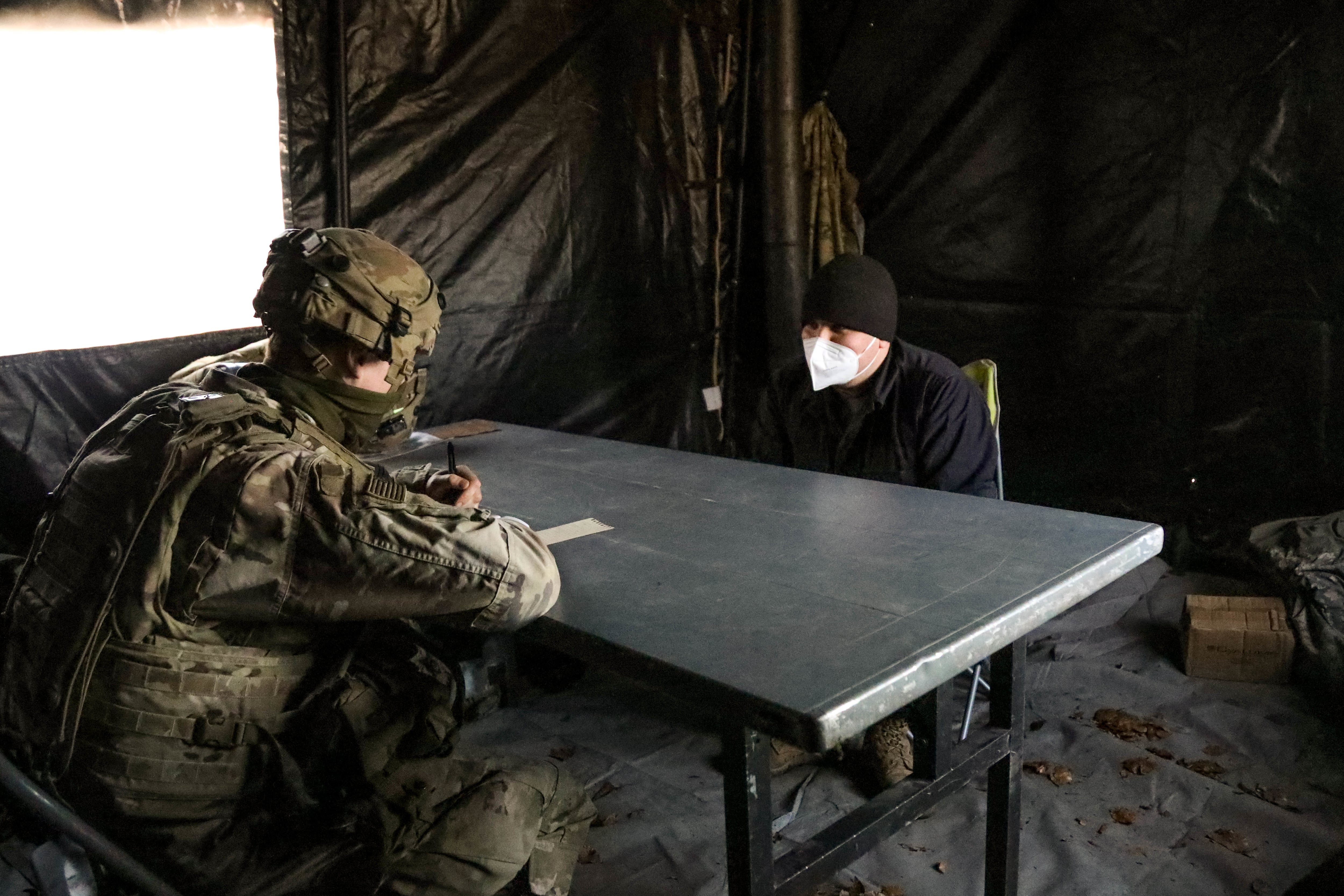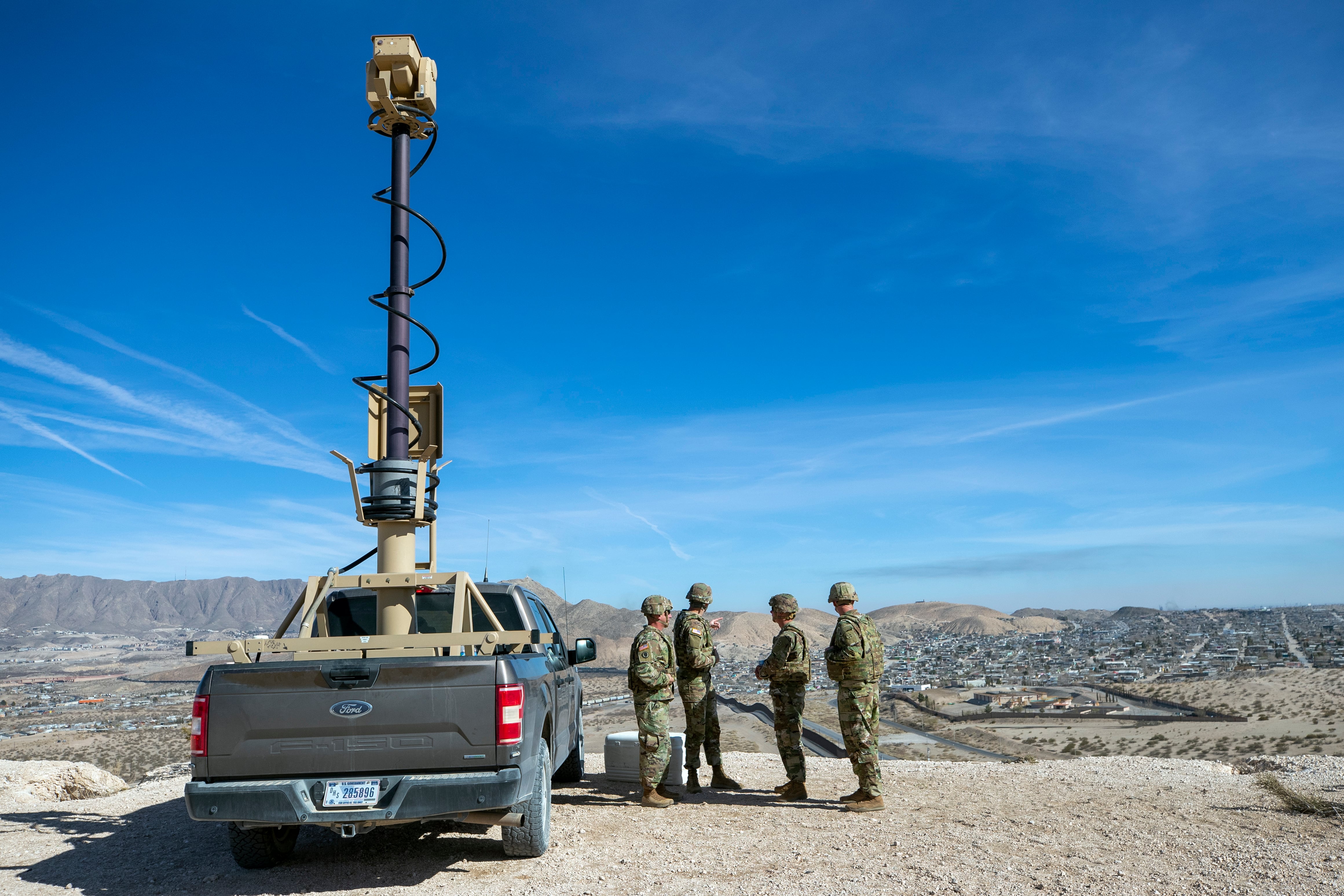An Army field manual that guides all national security interrogations needs revisions to prevent Americans from engaging in torture, such as an explicit ban on notorious CIA techniques used in the Iraq and Afghanistan wars, advocates said in a recent letter to Defense Secretary Lloyd Austin and other key officials.
The revisions are not needed to curb any currently known activities, but they would prevent future administrations from finding the kind of legal loopholes that allowed torture during the George W. Bush years, according to Scott Roehm, Washington director for the Center for Victims of Torture.
“What happens when the U.S. faces the next crisis? Will somebody take a look at this [Army field] manual and try to lawyer around it in the same way we saw what was done with the ‘torture memos’ in the aftermath of 9/11?” Roehm said by telephone Monday.
“And there are ways in which the field manual could be more protective against that kind of ‘acrobatic’ effort to allow for torture or cruel treatments,” Roehm added.
The May 20 letter was cosigned by Roehm’s organization, the American Civil Liberties Union, Human Rights Watch and Amnesty International, among others. It was sent to Austin, Director of National Intelligence Avril Haines, Attorney General Merrick Garland and FBI Director Christopher Wray.
Revising interrogation guidelines, the letter to senior officials said, would help fulfill President Joe Biden’s campaign promise to “reaffirm the ban on torture.”
Thanks to an amendment to the 2016 defense budget bill, there’s one key document to revise. All national security interrogations, excluding law enforcement, adhere to the methods described in Army Field Manual 2–22.3, “Human Intelligence Collector Operations.”

The manual currently has a list of prohibited actions, including waterboarding, mock executions and electric shocks. But advocates want that expanded to include all of the CIA’s “enhanced interrogation techniques” and any other “cruel, inhuman, or degrading treatment” identified in Senate reports from 2008 and 2014.
“This should include, for example, specifically banning ‘rectal rehydration’ and ‘rectal feeding,’” the letter reads. “Some, but not all, of these prohibitions existed in the 1992 version of the [Army field manual] but were deleted from the 2006 version.”
The letter also seeks the removal of interrogation methods like the “Emotional Fear-Up Approach,” which creates or preys upon a detainee’s existing fears, and the “Emotional-Futility Approach,” which “engenders a feeling of hopelessness and helplessness on the part of the source,” according to the Army field manual.
Intelligence collectors are instructed by the manual to “be extremely careful” not to “threaten or coerce” sources. However, they can use phrases like, “You know what can happen to you here?” and “We have heard many allegations of atrocities committed in your area and anyone that was involved will be severely punished.”
RELATED

Human rights advocates worry that some of these techniques could be interpreted in ways that allow inhumane treatment of detainees. Similar loopholes were exploited during the Bush administration, Roehm noted, pointing to a 2006 legal memo arguing that the conditions of confinement that detainees are placed in should be considered separate from interrogation methods.
Clarifying that the places and conditions detainees are confined must also be humane is another aim of the May 20 letter.
“It has to be clear that conditions of confinement aren’t an end run around not being able to use specific interrogation methods that constitute torture or cruel treatments,” Roehm said. “They have to explicitly prohibit both the former and the latter.”
The 2014 Senate report found that the CIA used abusive conditions of confinement to facilitate interrogations, including placing detainees in complete darkness, shackling them in isolated cells and blaring loud noise or music.
Lack of heat at the Cobalt black site north of Kabul, Afghanistan, likely contributed to the death of a detainee, the Senate report added, and a senior CIA officer stated that Cobalt was itself an enhanced interrogation technique.
“Nothing in there says keeping somebody in a ‘dungeon’ is an interrogation method, much less a permissible one, but that’s what one of the black sites was referred to by an actual CIA official,” Roehm said. “That has to be prohibited in the same way that an interrogation method is prohibited.”
The Office of the Secretary of Defense did not respond to a request for comment made Monday afternoon.
Kyle Rempfer was an editor and reporter who has covered combat operations, criminal cases, foreign military assistance and training accidents. Before entering journalism, Kyle served in U.S. Air Force Special Tactics and deployed in 2014 to Paktika Province, Afghanistan, and Baghdad, Iraq.





